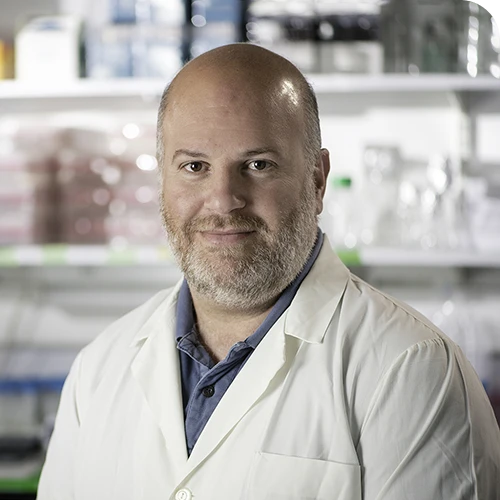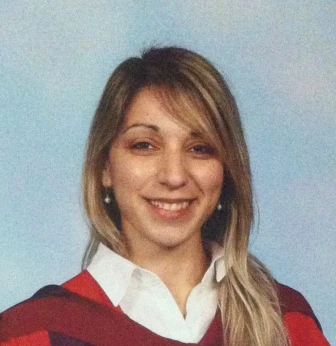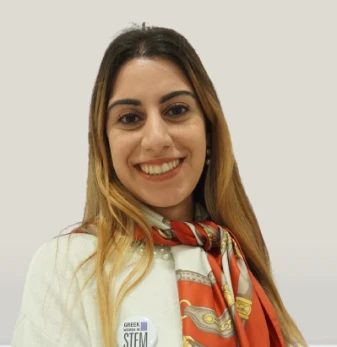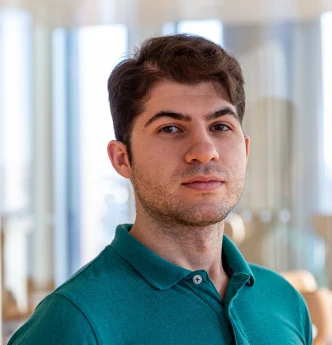Welcome to the Aqeilan Lab at the Cyprus Cancer Research Institute (CCRI). Led by Professor Rami Aqeilan, our lab is dedicated to unraveling the complex molecular mechanisms underlying cancer. Our goal is to uncover the basic mechanisms and to translate this knowledge into innovative strategies for cancer diagnosis, treatment, and prevention, ultimately improving patient outcomes.

Welcome to the Aqeilan Lab at the Cyprus Cancer Research Institute (CCRI). Led by Professor Rami Aqeilan, our lab is dedicated to unraveling the complex molecular mechanisms underlying cancer. Our goal is to uncover the basic mechanisms and to translate this knowledge into innovative strategies for cancer diagnosis, treatment, and prevention, ultimately improving patient outcomes.


Professor Rami Aqeilan was appointed as Scientific Director of the Institute, effective 1 November 2023.
Prof. Rami Aqeilan is concurrently the Head of the Institute for Medical Research Israel-Canada (IMRIC) at the Faculty of Medicine of the Hebrew University of Jerusalem and Professor of Immunology and Cancer Research at the Lautenberg Center for Immunology and Cancer Research.
At the Aqeilan Lab, our primary research interest lies in the intricate landscape of DNA double-strand breaks (DSBs) and their critical role in cancer development and progression. DNA DSBs are among the most severe forms of DNA damage, and their precise repair is crucial for maintaining genomic integrity and avoiding genomic instability. When this repair process is compromised, it can lead to the accumulation of mutations and the initiation of cancer.
Role of Tumor Suppressor Gene Products of Common Fragile Sites in Human Diseases
Common fragile sites (CFSs) are large chromosomal regions identified by conventional cytogenetics as sequences prone to breakage in cells subjected to replication stress. The interest in CFSs stems from their key role in DNA damage, resulting in chromosomal rearrangements. The instability of CFSs was correlated with genome instability in precancerous lesions and during tumor progression. Two opposing views dominate the discussion regarding the role of CFSs. One school of thought suggested that genomic instability during cancer progression causes collateral damage to genes residing within CFSs, such as WWOX and FHIT. These genes are proposed to be unselected ‘‘passenger’’ mutations. The counter argument is that deletions and other genomic alterations in CFSs occur early in cancer development. Cancer cells with deletions in genes that span CFSs are then selectively expanded due to loss of tumor suppressor functions such as protection of genome stability, coordination of cell cycle or apoptosis.
Recent observations from our lab clearly suggest that gene products of CFSs play driver roles in cancer transformation. Furthermore, accumulating evidence links some of these products with metabolic diseases and neuropathy. Investigating the role of these gene products in human diseases is a major interest of our lab work. The ultimate goal of our research is hence to discover the genes and to elucidate the pathways that represent targets for the development of rational, specific and effective therapeutic approaches.

Postdoctoral Scientist

Research Direction

Postdoctoral Scientist

Research Assistant
Lorem ipsum dolor sit amet, consectetur adipiscing elit. Ut elit tellus, luctus nec ullamcorper mattis, pulvinar dapibus leo.
Lorem ipsum dolor sit amet, consectetur adipiscing elit. Ut elit tellus, luctus nec ullamcorper mattis, pulvinar dapibus leo.
Lorem ipsum dolor sit amet, consectetur adipiscing elit. Ut elit tellus, luctus nec ullamcorper mattis, pulvinar dapibus leo.
Lorem ipsum dolor sit amet, consectetur adipiscing elit. Ut elit tellus, luctus nec ullamcorper mattis, pulvinar dapibus leo.
Lorem ipsum dolor sit amet, consectetur adipiscing elit. Ut elit tellus, luctus nec ullamcorper mattis, pulvinar dapibus leo.
We are dedicated to creating a comprehensive map of DNA double-strand breaks, employing state-of-the-art genomic technologies and innovative bioinformatics approaches. By understanding the when, where, and how DSBs occur and are repaired, we aim to gain significant insights into their contribution to cancer biology.
A cornerstone of our research is to identify and understand the vulnerabilities introduced by DSBs in cancer cells. These vulnerabilities represent potential therapeutic targets that could be exploited to selectively kill cancer cells without harming normal cells.
Leveraging the vulnerabilities identified, our goal is to develop innovative therapeutic strategies that target the unique dependencies of cancer cells on certain DNA repair pathways. This includes the design of novel drugs and gene therapies that can enhance the efficacy of existing treatments and overcome resistance mechanisms.
Our research work entails use of murine and human cancer specimens, models of genetic engineered mouse models (GEMMs), patient-derived xenografts (PDXs) and tumor organoids. We have a particular interest in studying pancreatic cancer, lung cancer and pediatric sarcomas.
Through our research, the Aqeilan Lab aims to push the boundaries of our understanding of the molecular mechanisms of cancer, with the ultimate goal of uncovering new pathways for targeted cancer therapy. Our work not only contributes to the scientific understanding of DNA damage and repair but also paves the way for the development of more precise and personalized cancer treatments.
Akkawi R, Hidmi O, Haj-Yahia A, Monin J, Diment J, Drier Y, Stein GS, Aqeilan RI. WWOX promotes osteosarcoma development via upregulation of Myc. Cell Death Dis. 2024 Jan 5;15(1):13. doi: 10.1038/s41419-023-06378-8. PMID: 38182577
Husanie H, Abu-Remaileh M, Maroun K, Abu-Tair L, Safadi H, Atlan K, Golan T, Aqeilan RI. Loss of tumor suppressor WWOX accelerates pancreatic cancer development through promotion of TGFβ/BMP2 signaling.Cell Death Dis. 2024 Jan 5;15(1):13. doi: 10.1038/s41419-023-06378-8. PMID: 38182577
Oster S, Aqeilan RI. Mapping the breakome reveals tight regulation on oncogenic super-enhancers. Mol Cell Oncol. 2020 Feb 11;7(3):1698933. doi: 10.1080/23723556.2019.1698933. eCollection 2020.PMID: 32391416
We are always looking for talented and motivated researchers and investigators to join our team. If you are passionate about making a difference in the world of cancer research, explore our current openings for postdoctoral researchers, graduate students, and research technicians. Learn more about how you can contribute to our mission.
For more information, collaboration inquiries, or to discuss potential research opportunities, please contact us at: [email protected]
Professor Rami Aqeilan, PhD; Scientific Director and Principal Investigator @ Cyprus Cancer Research Institute (CCRI)